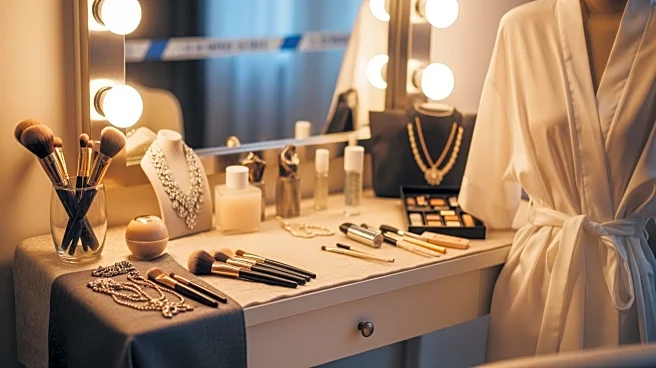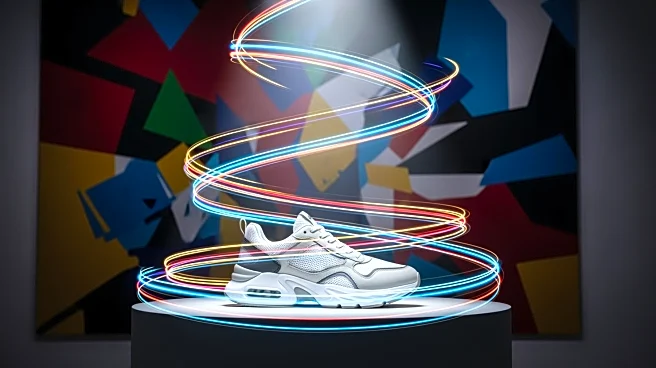What's Happening?
The Victoria's Secret Fashion Show is a major annual event that requires extensive preparation and coordination. Creative director Adam Selman described the show as a 'train' that keeps moving, highlighting
the meticulous timing and coordination involved. The event features numerous models, including Bella Hadid, Gigi Hadid, Emily Ratajkowski, and Behati Prinsloo, who begin preparations early in the day. The models undergo rigorous training and follow strict diets to prepare for the show, which includes wearing elaborate costumes such as angel wings. The production involves significant expenditure, with Selman acting as a conduit between musical acts, models, and stage design.
Why It's Important?
The Victoria's Secret Fashion Show is a significant cultural event that impacts the fashion industry and public perception of beauty standards. It showcases high-profile models and designers, influencing trends and consumer behavior. The show's emphasis on elaborate costumes and performances highlights the intersection of fashion and entertainment, contributing to the brand's global image. The event also provides a platform for models to gain visibility and advance their careers, while the brand benefits from increased media attention and consumer engagement.
What's Next?
Future iterations of the Victoria's Secret Fashion Show may continue to evolve, incorporating new themes and designs to maintain public interest. The brand may also face scrutiny regarding its portrayal of beauty standards and diversity, prompting potential changes in model selection and show presentation. Stakeholders, including designers, models, and consumers, will likely influence the show's direction, advocating for inclusivity and innovation in fashion.
Beyond the Headlines
The Victoria's Secret Fashion Show raises questions about the ethical implications of beauty standards and the pressure on models to conform to specific body images. The event's focus on spectacle and glamour may overshadow discussions about diversity and representation in the fashion industry. Long-term shifts in consumer attitudes towards inclusivity and body positivity could challenge traditional fashion show formats, encouraging brands to adapt to changing societal values.









